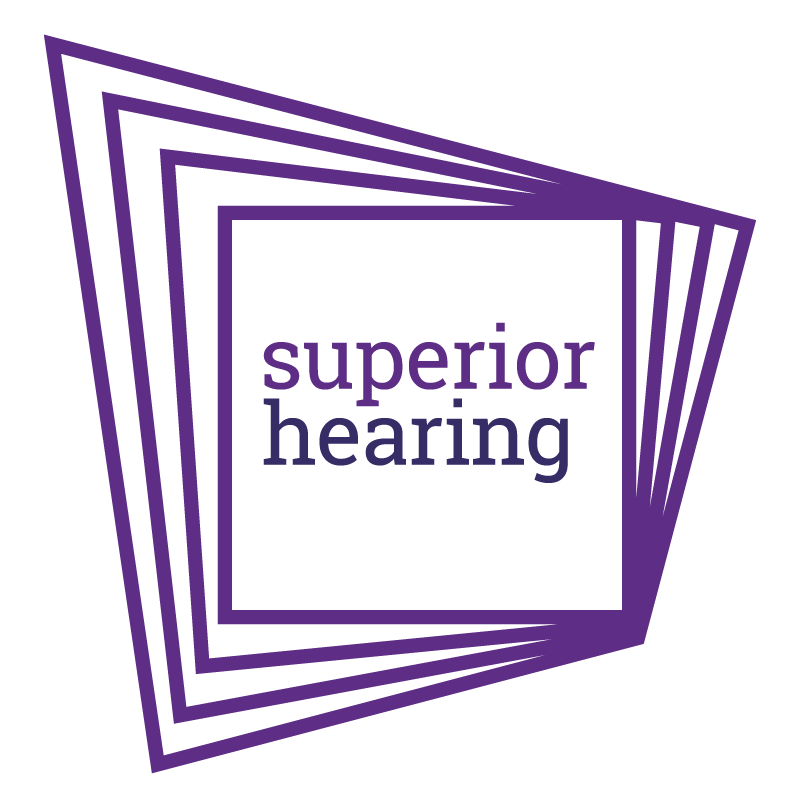Hearing Loss
Understanding Hearing Loss
The most effective remedy for hearing loss is personal education.
Our hearing is brought to us by a wondrous bit of science and some very purposeful anatomy. The ear is divided into three parts, and each part has a very specific function.

Outer Ear: The outer ear is what we see: the external structure that collects the sounds around and us directs them to the eardrum through the ear canal.
Middle Ear: Inside the middle ear, the eardrum vibrates and sends these vibrations to the inner ear via the ossicles. The ossicles are the three smallest bones in the human body. They are called the malleus, incus and stapes.
The Inner Ear: Is home to the fluid-filled cochlea. The cochlea contains tiny nerve fibres that convert sound into pulses that are sent to the brain.
Types of Hearing Loss

Hearing Loss & Quality of Life
Life can be stressful enough without deteriorating hearing making it’s unwelcome contribution.
Hearing is an essential sense that can be taken for granted until it begins to wane.
We know the story pretty well. You might say things like “People are mumbling…” or “I can’t hear the television anymore”. Or perhaps it is your family or spouse complaining of a lack of attention or focus. There is likely a hearing loss at play.

Ready to hear what everyone is talking about?
Hearing Loss FAQ
How can I recognize a hearing problem?
Most of the time, hearing problems begin gradually without discomfort or pain. What’s more, you and those around you often learn to adapt to hearing loss, without even realizing it. Here are some questions to ask yourself to determine whether or not you have hearing loss:
- Does it sound like other people are mumbling or slurring their words?
- Do I struggle to hear in crowded places like restaurants, malls, or meeting rooms?
- Do I prefer the TV or radio volume louder than others do?
- Do I often ask people to repeat themselves?
- Do I have trouble following conversations with more than two people?
- Do I have difficulty hearing what is said unless I’m facing the person speaking?
- Do I have a hard time hearing women or children?
- Do I experience ringing or buzzing in my ears?
If you answered yes to several of these questions, you may have a hearing loss.
Are there different types of hearing loss?
More about the different hearing loss types can be found on the Types of Hearing Loss section of our website.
How do hearing aids work?
At their most basic, hearing aids are microphones that convert sound into electrical signals. An amplifier increases the strength of the signal, then a receiver or speaker converts it back to sound and channels it into the ear canal through a small tube or wire. A battery is necessary to power the hearing aid and to enable amplification. More info can be found on the How Hearing Aids Work section of our website.
Wouldn’t my doctor have told me that I have a hearing loss?
Not necessarily. Only about 13% of family doctors routinely screen for hearing loss. Since most people with hearing loss hear just fine in quiet places (like the doctor’s office), it can be difficult for your doctor to recognize this problem. Only a trained hearing professional can determine the severity of your hearing problem, whether or not you could benefit from a hearing aid, and which type would best suit you.
Who treats hearing loss?
- Audiologists are professionals with a master’s degree, Au.D. or Ph.D. in Audiology, the study of hearing. They specialize in testing, evaluating, and treating hearing loss. An audiologist may also fit hearing instruments.
- Hearing Instrument Specialists are university or college trained in assessing hearing loss and in fitting and dispensing hearing aids. They are provincially licensed to test for hearing loss and to fit hearing aids.
- Otolaryngologists specialize in the diagnosis and treatment of ear, nose, throat, head, and neck disorders. Also known as ENT doctors.
If I think I have a hearing problem, what should I do?
You should make an appointment with a hearing professional like an audiologist, hearing instrument specialist for evaluation, consultation, and hearing test. They may refer you to your family health care provider or to an ENT.
How will a hearing aid improve my quality of life?
Research on people with hearing loss and their significant others has shown that hearing aids play a significant role in a person’s social, emotional, psychological, and physical well-being.
More specifically, treatment of hearing loss has been shown to improve:
- Communication in relationships
- Intimacy and warmth in family relationships
- Ease in communication
- Earning power
- Sense of control over life
- Social participation
- Emotional stability
When you consider all the benefits of better hearing, you can see that effective use of hearing aids has great potential to positively change your life.
Source: www.betterhearing.org
Will a hearing aid restore my hearing?
While no hearing aid can restore your hearing to normal (except in cases of very mild hearing loss), hearing aids are designed to let you hear soft sounds that you couldn’t hear before and prevent loud sounds from becoming uncomfortably loud for you. They are also designed to improve your ability to understand speech, even in noisy environments.
Will I be able to hear in noisy places?
While no hearing aid can filter out all background noise, advanced hearing aids are designed to reduce some types of background noise so that you can enjoy conversation and improve communication in places like restaurants, business meetings, and social gatherings.
What are the different types and styles of hearing aids?
Today’s hearing aids come in a wide variety of sizes and styles—from those that sit behind the ear to completely invisible hearing aids—and feature different technology level to match your specific needs and budget.
Doesn’t hearing loss only affect older people?
Hearing loss can occur at any time, at any age. In fact, most people with hearing loss are younger than the age of 65. It often takes 7-10 years to recognize an early hearing loss.
Won’t a hearing aid make me stand out?
While you are no doubt concerned about appearance, compensating for a hearing loss by asking people to repeat themselves, inappropriately responding to people (or not responding at all), or even withdrawing from social situations is more obvious than wearing a hearing aid.
Today’s hearing aids are small, discreet and more stylish than ever before. Some are even referred to as “invisible”. Chances are, that once you have a hearing aid, your quality of life will improve so much that cosmetics won’t be as much of an issue for you. More info can be found on the Types of Hearing Aids section of our site.
What is the most common cause of hearing loss?
There are several causes. The main ones include excessive noise, infections, aging, and reaction to drugs or cancer treatment.
How do I know which hearing aid is best for me?
There are several factors that determine which hearing aid will be the right one for you. They include the type of hearing loss, your lifestyle and the activities you regularly enjoy, your job, your eyesight and dexterity, and the size and shape of your outer ear and ear canal. Ultimately a hearing professional should work with you to find the best option for your specific needs.
What are some advances in hearing aid technology?
Like many other high-tech devices, hearing aids have experienced a major technological revolution in the past decade and especially in the last few years.
The best of today’s hearing aids are designed to virtually eliminate feedback, (that annoying whistling sound that hearing aids used to make); help to make listening in noisy environments easier and more comfortable; stream stereo sound from TV’s and radios directly to the hearing aid itself; let you talk on the phone hands free; and much more.
Is there an adjustment period to wearing hearing aids?
Yes. Most people need an adjustment period of around 4 weeks before feeling more comfortable with and receiving full benefit from their hearing aids. However, you should expect to notice obvious benefits during this initial period.
Will I need a hearing aid for both ears?
Two-ear hearing (called “binaural”) is better than one. If you have hearing loss in only one ear, you may be fine with one hearing aid. Age and noise-related hearing loss tend to affect both ears, but your hearing profile for each ear is probably different. If there is a loss in both ears, you will probably benefit more with a binaural solution. Today, most new users opt for dual hearing aids, and as a group, they report a higher level of satisfaction than purchasers of a single hearing aid.
How much do hearing aids cost?
The price of a hearing aid will vary depending on the specific model and features you need, and how effective it is in various noisy environments. You should check to see if you qualify for free or discounted hearing aids from your employer, union, WSIB, the Veterans Administration, or insurance provider.
Are over–the-counter hearing aids any good?
Inexpensive models are simply hearing amplifiers that will make everything louder (including all the ambient noises around you). They will not, for example, separate human voices from background noises, or have directional abilities like today’s more sophisticated hearing aids are designed to do.
What about purchasing online?
The Internet offers many advantages for consumers looking for information and products. Online purchasing is convenient and private, and in some cases may offer cost savings. However, before you buy hearing aids online, here are some things you should know:
- A hearing aid is a complex medical device, not a simple sound amplifier
- Hearing aids have digital technology that can be set by a hearing professional to meet your personal hearing needs
- Hearing aids bought online without a complete hearing test and evaluation will likely not meet your needs
- Your local hearing specialist will not be able to set the hearing aids to meet your needs if they were purchased online, as they may not have access to the software required for your specific hearing aid.
- To help you through your adjustment with your new hearing aids, hearing professionals provide office visits, reprogramming, counselling, and support, when you buy a hearing aid from them. Hearing aids purchased online will generally not include these services.


